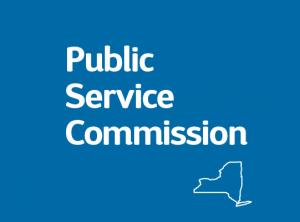New York Community Solar Plan

Deeming a proposal consistent with state policies seeking to bring more renewable energy and energy-efficiency options to limited-income consumers, the commission authorized an electric utility, Consolidated Edison Company of New York (ConEd), to proceed with its plan to institute a "shared solar pilot." According to the utility, the program is intended to make so-called community distributed generation (CDG) more available to customers currently participating in Con-Ed's electric low-income affordability program.
The company said that the shared solar pilot was developed as an outgrowth of New York's "Reforming the Energy Vision" (REV) market restructuring initiative. Some of the precepts underlying the REV policy include utility ownership of distributed energy resources (DERs) and low-income CDG offerings, among many other concepts and proposals. The commission found that the utility's proffered pilot will provide low-income households with greater opportunities to participate in clean and renewable energy offerings. It commented that low-income consumers historically have been underserved in the renewables market.
Under the program, ConEd will install solar generation arrays on utility-owned rooftops and other company-owned locations. The utility related that it plans to prioritize installation of solar generation in areas where additional DER penetration may benefit the system and other customers through a reduced need for traditional infrastructure investments. It also indicated that while it is willing to consider other renewable resources, such as wind, as part of the pilot, the primary focus of the pilot will remain solar generation.
The commission acknowledged that some parties had voiced concern about implementation of a utilitysponsored program at such an early stage in the development of the restructured market. But the commission responded that there are a number of unique and extenuating circumstances in New York City which warrant special consideration of the pilot program. To name a few, it pointed to the lack of available space for large solar arrays, inflated property costs, and the high number of renters who are unable to install solar generation on their own rooftops.
The commission said that such factors all contribute to a lower solar penetration rate for ConEd when compared to the service territories of other utilities around the state. However, the commission agreed that certain ratepayer protections should be put in place to help mitigate the reservations raised by some parties.
Consequently, in an effort to insulate customers from undue risk associated with ConEd's new community solar program, the commission capped the utility's costs of the shared solar pilot at $9 million of capital expenditures. In addition, it ruled that in order to further mitigate the impact on nonparticipating customers, ConEd must set aside a portion of the value of associated solar credits, up to a maximum of $100,000, for future use in months during which the value of solar production fails to exceed program costs. Re Consolidated Edison Co. of New York, Inc., Case 16-E- 0622, Aug. 2, 2017 (N.Y.P.S.C.).



